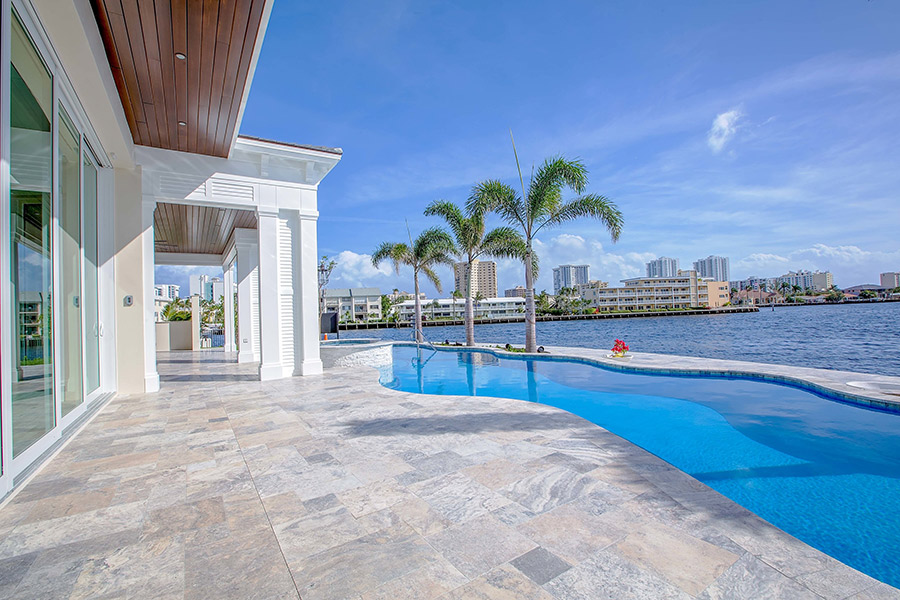Travertine pavers are a popular choice for patios, pool decks, walkways, and driveways thanks to their timeless beauty and natural durability. But one question that often comes up with homeowners and contractors alike is: Do travertine pavers crack easily?
Let’s explore how durable travertine really is, what causes cracks, and how to prevent them so you can enjoy your investment for years to come.
What Is Travertine?
Travertine is a natural stone formed from mineral deposits, typically around hot springs. It’s been used in architecture for centuries, known for its porous surface, earthy tones, and luxurious appearance. Because of its origin, travertine is naturally dense and resilient, making it ideal for outdoor use.
Do Travertine Pavers Crack Easily?
In general, no—travertine pavers do not crack easily when properly installed and maintained. Travertine is a strong, long-lasting material that can withstand heavy foot traffic, high temperatures, and even the freeze-thaw cycles in colder climates.
However, like any paving material, cracks can occur under certain conditions.
Common Causes of Cracking in Travertine Pavers
-
Poor Installation
One of the most common causes of cracking is improper installation. Travertine should be laid on a well-compacted base with proper drainage and flexible joints. Installing it directly on unstable or shifting soil can lead to cracks over time. -
Heavy Loads
While travertine is strong, it’s not ideal for areas that handle very heavy vehicles unless the thickness and subbase are designed to handle the load. For driveways, thicker pavers (like 2-3/8″) are recommended. -
Ground Movement or Erosion
Shifting soil or water erosion underneath the pavers can cause them to move, settle unevenly, and eventually crack. -
Extreme Temperature Changes
Although travertine performs well in most climates, rapid freezing and thawing cycles can cause expansion and contraction in the stone, leading to hairline cracks if not properly sealed or installed with expansion joints.
How to Prevent Travertine Pavers from Cracking
-
Hire an experienced installer who understands proper base prep and drainage.
-
Use polymeric sand or flexible joint material to absorb movement.
-
Seal your travertine pavers to protect them from moisture intrusion and temperature damage.
-
Avoid driving heavy vehicles over areas not designed for vehicular load.
-
Inspect and maintain the subbase over time to prevent settling or erosion.
Travertine vs. Other Paver Materials
Compared to concrete or brick pavers, travertine offers superior temperature resistance and slip resistance, especially around pools. While concrete may crack over time due to heat expansion, travertine remains cool underfoot and is less prone to cracking when installed correctly.
Final Thoughts -Do travertine pavers crack easily?
Travertine pavers are a durable and reliable choice that do not crack easily—when installed and maintained properly. Their natural strength, timeless beauty, and resistance to the elements make them a worthwhile investment for your outdoor living spaces.
If you’re considering travertine for your next project, work with professionals who understand the nuances of natural stone installation. With the right prep and care, travertine pavers can last for decades without cracking.
Need help choosing the right paver for your project?
Contact us today for expert advice and premium-quality travertine at competitive prices!

